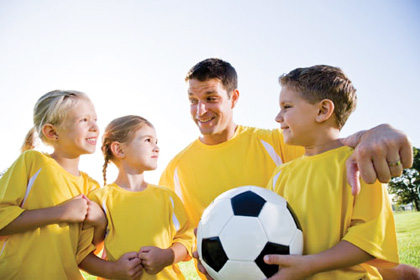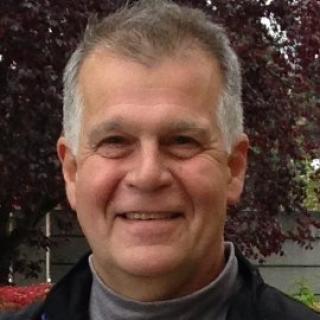 Shin guards, shoulder pads and batting helmets protect young athletes from injuries. But there’s nothing kids can wear to protect them from predators in the coaching ranks.
Shin guards, shoulder pads and batting helmets protect young athletes from injuries. But there’s nothing kids can wear to protect them from predators in the coaching ranks.
The recent scandal at Penn State University is a sad reminder of an ugly truth. Fields, courts and pools filled with children who want to please an authority figure set the perfect environment for predators.
“If you’re a predator, what better place to be?” asks Dr. Leslie Walker, who leads the division of adolescent medicine at Seattle Children’s Hospital. “The vast majority of the people who coach do it for the right reasons, but there are always going to be a few people who want to be around kids for not the best reasons.”
The risks are real. As many as one in three girls and one in five boys may experience some form of sexual abuse before the age of 16, according to the King County Sexual Assault Resource Center (KCSARC). While coaching is just one avenue predators use to target their victims, it’s important for children, parents and league officials to recognize the opportunities sports create for people who prey on kids.
Background checks
Many children start sports between the ages of 7 and 11. Their coaches are usually volunteers whose primary qualification is their willingness to do it, not a résumé full of references — except perhaps the fact that some other parents may know them because the coach also has a child on the team.
Regardless of who knows whom, parents should make sure the leagues their children play in subject their coaches — and anybody who assists them — to regular criminal background checks, says Joan Duffell, executive director of the Committee for Children, a Seattle-based child advocacy group. “And nobody should take offense at having a criminal background check, even if they’ve been coaching 15 years,” she says.
The Washington State Youth Soccer Association conducts criminal background checks every other year as part of issuing risk management cards. “Anybody who comes in contact with a youth player has to get a card,” says Doug Andreassen, president of the association. “We’ve been doing it for about 20 years.”
The Washington State Patrol conducts the checks, but the state patrol only searches Washington state criminal records. The association is now looking for a vendor to conduct national background checks. “We want to make sure we have maximum security,” Andreassen says.
The state association pulls three or four risk management cards from people every year after learning of actual or alleged sexual misconduct, explains Andreassen. When that happens, the person is not just banned from coaching — they’re also banned from being a spectator. Although enforcing such a ban is difficult, “We do the best we can [because] they might be looking for their next victim,” Andreassen says.
Besides dealing with charges of outright sexual misconduct, the state and local associations also respond to complaints about coaches who — regardless of their intentions — cross boundaries spelled out in the KidSafe Program developed by the United States Youth Soccer Association. The association expects its coaches to conduct themselves according to the program and asks everyone applying for a risk management card to review the KidSafe website (kidsafe.com).
Don’t leave kids alone
One the biggest dangers arises from an alarmingly common occurrence: “A lot of these kids are being dropped off before practice and picked up after practice, so there are lots of opportunities for a coach to be alone with a child,” says Lindsay Palmer, education and prevention director with KCSARC.
KidSafe admonishes coaches to never be alone with a child. There should be at least one other adult besides the coach at practice at all times, and at least two adults should wait for players to be picked up after practice or games.
Predators don’t give up easily, though. Parents should be wary of a coach who singles out a player for extra one-on-one instruction or finds other ways to spend time with them outside practice — no matter how legitimate or flattering it may sound. Parents’ antennae should also go up if a coach tries to become a player’s friend, which in the era of social media can be tough to detect.
One of the ironies is that a predator is likely to be a very good coach who’s popular with parents and players alike. “They’re often very good at fooling people,” Duffell says. The best protection, she says, is to establish and enforce safety policies that all coaches must follow under all circumstances, she says.
While many parents feel confident about their own child’s safety because they watch every practice and never miss a game, there may be other children on the team whose parents are less involved and whose home life may be in turmoil. Those are the kids a predator is most likely to target.
“Say something if you see something,” urges Palmer. “The one thing about the Penn State story is that people all along the way could have been part of the prevention process if they would have been more vocal.”
Brad Broberg is an Auburn-based freelance writer.
Protecting your children from predators
What can parents to do help protect their children from predators? Talk to them about ways to respond to inappropriate behavior, says Dr. Leslie Walker, who leads the division of adolescent medicine at Seattle Children’s Hospital.
“Parents need to tell their kids over and over again, ‘If anything is going on that makes you uncomfortable, let me know,’” he says.
Coaches who abuse children are often successful and charismatic.
That can make it harder for victims to tell their parents about the abuse, because mom and dad may like and respect the coach. Often, the child doesn’t want to disappoint them, says Walker.
One way around that is to suggest alternatives to the child. Kids can write down what happened or tell a friend about it. “Give them a road map to navigate a very difficult situation,” Walker says.











